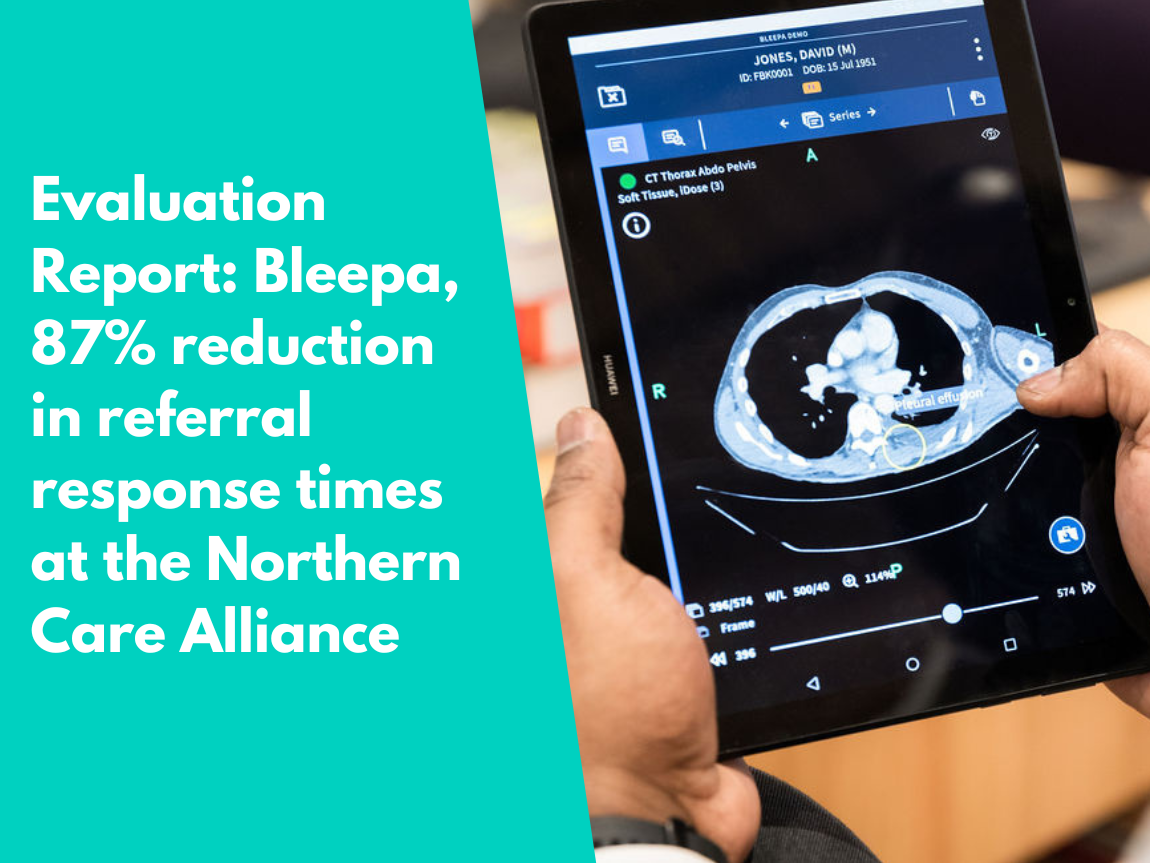
Key findings
Referral response times
Within the respiratory specialty it took 0.28 days on average for a referral to receive a response. This is a decrease of 87% from the 2.1 day average identified in a previous study (Beattie, 2020)
Bleepa referral data from July 2021 to April 2023 found that the average time from submission of a referral to first review across the trust’s respiratory, cardiology and gastroenterology specialisms was 0.55 days. This was a reduction of 1.55 days (74%) compared to the 2.1 day average time lag recorded before the platform’s deployment at NCA.
Staff experience
Surveys highlighted that 76% of staff using Bleepa identified time savings, which was consistent with the quantitative findings.
80% of surveyed staff identified an improvement in staff communication when using Bleepa compared to previous referral methods.
88% of staff identified Bleepa as easy to use.
Patient experience
The referral response times indicate that patients may receive treatment faster, which could yield a reduction in their length of stay.
Approximately 32% of referrals could be handled without having to see the patient, suggesting that Bleepa could successfully handle at least 32% of patient referrals remotely.
Economic benefits
The research estimates that the collected time savings from faster referrals, efficient clinical messaging and reduced length of stay for patients from NCA’s use of Bleepa could unlock savings of £819,000 over the five years to the 2027/28 financial year (net of the cost of Bleepa).
If effectively adopted across the whole Greater Manchester ICB footprint, it could free up £7.7 million in non-cash savings over the same period.
Conclusion
As the health and care system navigates its way through heavy elective care backlogs against the backdrop of both a tough financial environment and demands from the centre for even greater efficiency gains, the results of this evaluation offer encouraging signs around the benefits that Bleepa can yield.
By enabling efficient and effective clinical communication within the key specialties where it was deployed, Bleepa has demonstrated that it offers the potential to release valuable time back to care teams when compared to previous referral methods.
This is in part down to the fact that staff using the platform observed the ease with which they could use Bleepa to carry out key tasks associated with patient care. The vast majority of those who discussed their experience using the application (over 80%) told evaluators that it had improved their communication with their colleagues.
Finally, these findings also point to the economic benefits that can be afforded to the wider care system when Bleepa is implemented and used effectively to make referrals and collaborate within and between clinical teams.
Download the full report on the Bleepa website >


